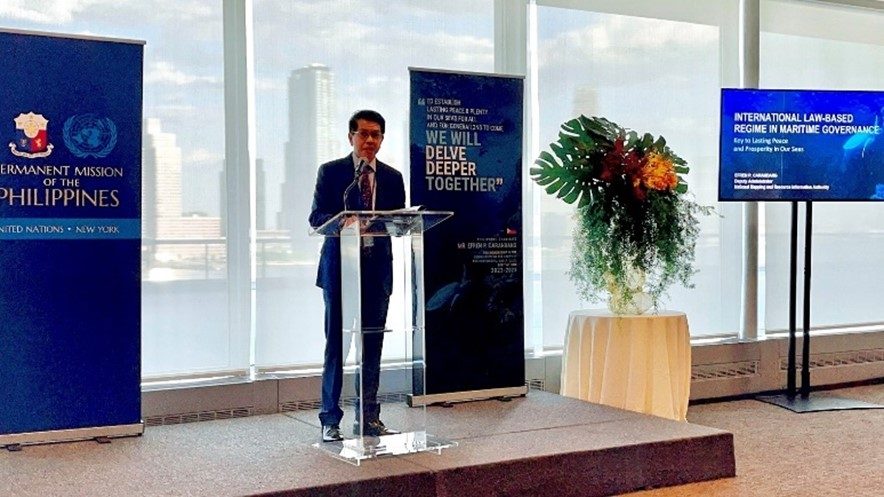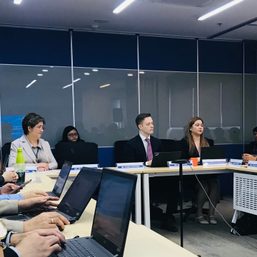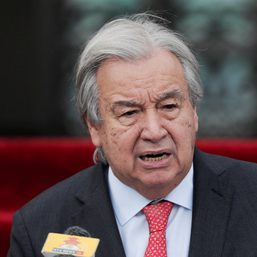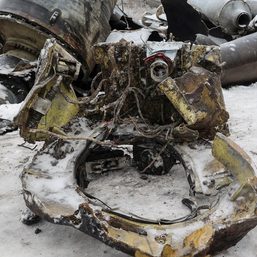SUMMARY
This is AI generated summarization, which may have errors. For context, always refer to the full article.

MANILA, Philippines – A Filipino who has quietly spent most of his life mapping out the limits of the Philippines has landed a seat in a distinguished United Nations body that has the power to determine if seabed territory can become part of nations.
The prestigious position on the UN Commission on the Limits of the Continental Shelf (CLCS), occupied for the first time by the Philippines, brings full circle years-long efforts to establish the country as an authority on maritime affairs. Among three bodies created to implement the United Nations Convention on the Law of the Sea (UNCLOS), it is now the second where the Philippines is present, including the International Seabed Authority.
Bu for Efren Carandang, deputy administrator of the National Mapping and Resource Information Authority, having a place at the CLCS is only another beginning, a new venue where he can push for the lawful use of the ocean and its resources.
“My advocacy really is the full and strict implementation of international law, including UNCLOS, the full determination of maritime entitlements of coastal states in the delineation of different maritime zones, and in the delimitation of international maritime boundaries. We have been very consistent with that advocacy,” Carandang told Rappler in an interview.
Carandang was elected into a five-year term at the CLCS, where he will be working in a personal capacity, alongside his current work in the Philippines. The expert body is tasked with examining whether claims filed by nations regarding underwater territory fall in line with international law. It also makes recommendations to states submitting claims, which if followed, become “final and binding.”
He is regarded as a perfect fit, having spent over 30 years building a career in the field, and in turn becoming one of the country’s go-to persons on “everything about maritime boundaries, maritime zones delineation, and technical aspects on the law of the sea.”
In his new role, Carandang views his stint at the CLCS as a step up in the country’s long fight to defend the rule of law in the seas.
“As one of the largest archipelagic states, we really have to get involved in International maritime affairs so that our advocacies as a maritime state, as an UNCLOS abiding nation, are being made part of the international and maritime oceans agenda,” he said.
Carandang continued: “We cannot just leave it to the maritime powers. We are also a big stakeholder…. We really have to be very active in pursuing regional and global initiatives that foster the peaceful and sustainable uses of the oceans.”
Recognition of expertise
Maritime law expert Jay Batongbacal of the University of the Philippines Institute for Maritime Affairs and Law of the Sea said having a place at the CLCS is a “significant prestige position” for states that are successfully elected into the body.
That the Philippines for the first time is represented in the UN body means it has developed enough expertise to contribute and assess claims made by other states on their undersea territory.
“Representation in the CLCS is recognition that the PH has attained the requisite level of scientific competence to be able to directly participate in the evaluation and validation of other States’ continental shelf claims. It also indirect evidence of the state of our own scientific capacities and human resources,” Batongbacal said.
Carandang is a prime example of Filipino expertise. He is among experts credited with developing the Philippines’ submission for the 13-million hectare Philippine rise, also known as Benham Rise, which was recognized by the CLCS in 2012.
The successful validation of the Philippines’ claims to the underwater plateau (which is larger than Luzon) became the first major expansion of the country’s maritime boundaries since it declared its 200-nautical mile exclusive economic zone in 1970. As a result, the Philippines was confirmed to have sovereign rights over the area believed to be rich in minerals and gas.
With other maritime claims pursued by the Philippines in areas including the West Philippine Sea, would having representation at the CLCS affect these? The short answer is no, because the CLCS is not an adjudication body and does not settle disputes between states.
“Since the CLCS is a scientific body, and according to its own rules, it will not deal with continental shelf claims that are subject of pending disputes. The competence and jurisdiction to resolve such disputed claims remains with States,” Batongbacal said.
Boon for developing countries
Nevertheless, having the Philippines as part if the CLCS for the next five years is still a milestone. For Carandang, it showed the country should be taken seriously as a maritime nation.
“The message [is] that, ‘Hey, the Philippines is serious. We have been very consistent in the application of international law, in maritime governance, and we are doing this. Listen to us,’” he said.
For other developing countries, having a representative from the Philippines at the commission also gives assurances that the perspective and concerns of similar countries will be heard.
“For the other countries that make submissions, it provides assurance that their concerns as developing countries will be heard and considered properly,” Batongbacal said. “Although the CLCS is a scientific body, having a kind of sympathy and sense of solidarity among developing countries is still important to ensure smooth interactions between such States and international institutions.”
During his term, Carandang said he’d push to make the CLCS a more dynamic group that could “make very strong representations up to the highest level of decision making at the UN.” Brining his extensive experience as a manager in the executive branch, Carandang also vowed to find ways to speed up operations of the commission, citing the slow resolution of submission as a common concern among countries.
He said, “They really need like-minded and progressive members and that’s what we’re offering. We’ll look at the root causes and initiate changes in the current system because no matter how perfect a system is, it has to evolve with the times.” – Rappler.com
Add a comment
How does this make you feel?





There are no comments yet. Add your comment to start the conversation.